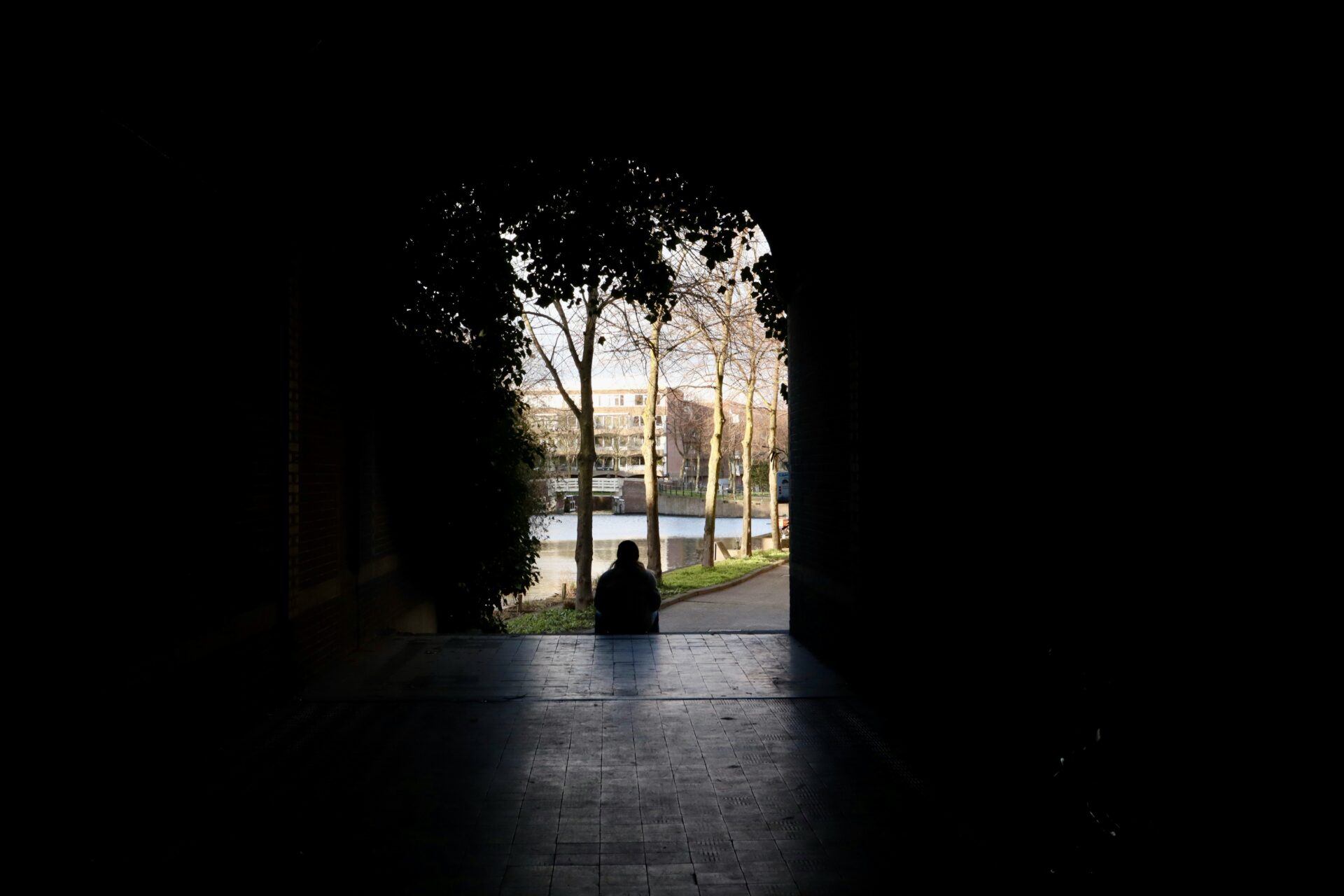


Written by Emily Cross.
12 minute read

If you’re worried about the unexpected death of a loved one and are trying to find out if something has happened, it’s natural to feel unsure where to start or who to turn to. Not knowing whether or not someone you love has died may cause a deep sense of upset and uncertainty, but there are steps you can take to put things right. The same applies if you are actively supporting others while they deal with the feeling of having lost touch with someone they sense is no longer alive.
While we focus on assisting with practical considerations such as our direct cremation services, we also understand the complex array of emotions that conversations around death create. We hope that this guide helps you to find some sense of closure and allows you to start the grieving process safely in the knowledge that you have found accurate information.
Key Takeaways:

As a family-run funeral provider, we regularly talk with people and families who have lost touch or who have lost a loved one in a way that has created a period of uncertainty. We are not here to judge and only wish to help you find the answers you need.
UK death records are publicly available and can be accessed via the General Register Office (GRO) in England and Wales, via National Records of Scotland in Scotland, and via nidirect in Northern Ireland. Searches typically require the full name, date of birth, and location of the death that you wish to confirm, and all digital records are securely stored at all times.
Use online obituary and death notice websites
The act of remembering a loved one is increasingly moving online. That means that a range of digital obituary platforms and funeral director websites now publish recent death announcements. Although the amount of data may feel overwhelming, you should be able to quickly narrow down your search by filtering by name, date, and region.
In today’s world, many people who are trying to figure out how to deal with grief turn to the connections and support that social media can offer. Facebook, in particular, is a place where family and friends commonly announce a death to a wider social circle. That said, it is important to try and confirm the death has occurred by looking at multiple sources or contacting the original poster directly.
Knowing what to do when someone dies becomes more complicated when you are somewhat uncertain about when the death occurred and what happened. Thankfully there are a range of free resources that will help you to find the answers you deserve.
Sites like GOV.UK, the GRO, and local authority websites across the country are all freely accessible at no cost. You will typically find that the date of death, location, and record status are all available, but that more in-depth social care and medical care details remain private and require the next of kin to give permission for you to view them. If the death has recently occurred, you may find that there is a delay of approximately 5 working days for the digital records to appear online.
In the days before social media, many people looking to know how to announce a death to friends would place an obituary in the newspaper, and many people still use this approach to this day. Free resources such as the British Newspaper Archive allow you to search right across the UK and may help you find the information that allows you to figure out how to break bad news to your wider circle of friends and relatives.
We completely understand that if you are unsure whether a loved one has died, or if you have lost touch with them in recent years, you may not have a comprehensive set of information with which to conduct your search. Taking a moment to consider the following section may help you to close some of the gaps before you start making connections online.
If you feel able to, putting together as much of the following information as you can could greatly speed up your search:
You may find that even just one extra piece of information greatly improves the accuracy of your search and helps you find the key details you have been looking for.
Under UK law, death records and death certificates are considered public records, which means anyone is able to request a copy at any time. That said, more in-depth records that cover social care and medical care will not be made publicly available and will require proof of purpose or proof of your relationship with the person who has died. For example, if you read our guide about what happens when someone dies in a care home and want to clarify key details, you may have to provide proof of who you are or justification for why you want the information.
Being unsure whether or not someone you know has died may prove to be an unsettling, upsetting time. We are here to help, and provide practical solutions that will allow you to get the closure you deserve.
The death certificate typically lists the cause of death and is issued by the GRO. You can
request a death certificate online or by post and you will find the latest timeline on how long this is likely to take when you click on the link. While a death certificate may feel intimidating or emotionally overwhelming, it’s important to note that it remains the most reliable way to officially confirm the cause of death.
Obituaries and press releases may mention how someone died and provide some additional context, although this is generally done at the discretion of the person submitting the written statement and there is no set formula. In many cases where the death is sensitive or the family wishes to keep it private, the cause of death will be omitted and other details such as the location may be kept back.
If you find that someone has already died and you wish to pay your respects, the next step is to locate their grave or memorial. There are online services that allow you to address these sensitive issues quickly and reliably.
Websites like Find a Grave or Deceased Online can be used to accurately locate burial sites so that you can pay your respects in a way you see fit. In some cases, you may find that a photo has been added to confirm the location and nature of the grave or memorial. Preparing yourself for such an image may help reduce the initial shock you could experience if you click on the record and are suddenly presented with something you were not emotionally ready to see.
There are a growing number of digital platforms that families are using to pay tribute to their loved ones. While sites like Facebook remain popular, some families and loved ones feel that having a dedicated platform is more appropriate and allows them to carve out a space where they can feel connected with their loved one online.
These platforms are often visited intentionally, creating a sense of shared purpose among those who come to pay their respects. They’re used not just to announce a death or share funeral details, but to thank mourners, mark anniversaries and keep memories alive in the weeks, months or even years that follow.
At Aura, we offer the Aura Circle: a private online space where family and friends can come together, share memories, post tributes, and support one another. It’s a space created with care, allowing you to honour someone’s life in your own way. Every family should feel safe and supported in how they choose to grieve, whether that’s through digital memorials or more traditional means.
Anyone who has lost someone or is unsure if someone they love has died could find themselves using these types of services, sites, and platforms. If you feel that they may help you to get the information you need and make the connections that will help others, exploring your online options may help you to start working through your individual healing journey.
For example, if you are trying to figure out how to cope with the death of a parent, you may find that creating an online memorial where their old friends, colleagues, and even classmates can connect helps you. Many families find that creating an online community that comes together at certain times throughout the year to remember their loved one can help to provide a sense of connection.
Family members and friends may seek confirmation and closure while legal professionals, journalists, and social workers may require verified documentation. There are also genealogists and researchers who may need official information to ensure the accuracy of their studies. Provided the records are treated in the manner intended, every need and use is equally valid.
A common example would be when a solicitor needs to figure out what happens in inheritance cases where dying without a will has complicated the distribution of the estate. Another would be when dying in hospital leaves unanswered questions for relatives who never got a chance to prepare themselves for the death of their loved one.
We hope that you have found some words of support and guidance in our guide and that it goes some way to helping you find the answers you need.
We also want you to know that we are here for you regardless of which path life sends you down. Some choose to use our *prepaid funeral plans to put their own affairs in order while others use our guide where we compare funeral plans to figure out what comes next.
No matter why you need us, we are always right here when you need us.
*Terms and conditions apply. You will receive a funeral plan summary before purchase.



Contacting the local registrar’s office, the local council office, and the GRO will connect you with the answers you need when you want to confirm if someone you love has died. Generally speaking, these types of official sources are the most accurate and reliable.
Death records in the UK are public and all you need to do to make a request is to provide details of the death such as when it occurred and who the person was. Platforms such as death-notices.co.uk and Publicrecordsearch.co.uk may help you navigate the process in a way that reduces your stress.
Death certificates are considered public documents under UK law and can be requested via the GRO if you are in England and Wales. It’s important to note that more in-depth information such as medical care and social care will not form part of the death certificate and is considered private.
Although there may be more misinformation on social media than in an official record, sites like Facebook have taken steps to verify death announcements. Profiles that are memorialised and turned into memorial pages generally require the next of kin to submit a death certificate to confirm that the person has died.
Sites like Legacy.com are regularly updated and include deaths faster than many official records. Being able to find the information you need with the absolute minimum of delay may help you process your grief and start coming to terms with the death of someone you love.
Deceased Online and Find a Grave provide digital indexes of graves across the UK and sometimes images of the graves themselves. Preparing yourself to potentially see the grave of a loved one for the first time on your screen may help you to process the emotions that will understandably follow.
staging site last replicated: MISSINGNO.